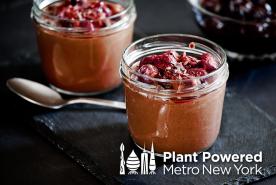Last updated: September 05, 2025
Medically reviewed by: NKF Patient Education Team
Learn about the risks and benefits of herbal supplements and how to choose safer options if you have kidney disease.
About herbal supplements and kidney disease
Herbal supplements are plants or plant parts that people may use to help with their health. These are available as pills, powders, or drinks and sold almost everywhere, including pharmacies, grocery stores, and online. These products are often marketed as natural treatments for various health conditions. While many products are generally safe for most people, “natural” does not always mean “safe.”
For people living with chronic kidney disease (CKD), herbal supplements can have many risks. These include making your kidney disease worse, interacting with your prescription medications, or increasing your risk of CKD complications. Learn more about how to make safer choices when considering these products.
Contrary to popular belief, the United States Food and Drug Administration (FDA) does NOT regulate herbal supplements for dose, content, or pureness. Instead, the person taking a supplement is responsible for knowing the potential risks and benefits of their use.
How they work
Herbal supplements are natural compounds made from plant parts, like the leaves, bark, roots, seeds, or flowers. Some herbal supplements are made from whole parts of the plant, crushed up into little pieces. More often, manufacturers extract (remove) active ingredients from the plant, and turn them into pills, teas, extracts, or powders.
Some of the different ways that herbal supplements can be used include:
- Swallowing by mouth as pills, powders, or tinctures (concentrated liquid extract of a plant)
- Applying to the skin as gels and lotions
- Adding to bathwater
- Drinking as tea
- Breathing them in through smoking, herbal steams, and/or diffusers
Effectiveness
In the United States, herbal supplements are considered food products, not medicines. So, they are not required to go through the same clinical trials that prescription medicines do to prove they work. This makes it very hard to definitively say whether an herbal product is effective. But this does not mean that studies with herbal supplements do not exist. Some manufacturers will do small studies to measure their product’s effectiveness. But if studies exist, they often do not include people living with kidney disease. So, it can be hard to find good information about how well an herbal supplement will work in a person living with kidney disease.
Safety
The safety of herbal supplements is a very important consideration for people living with kidney disease. As mentioned earlier, herbal supplements are not held to the same standards as medicines in the United States. This can make it hard to know how safe an herbal supplement is, especially for people living with kidney disease.
Important safety risks to consider include:
- Herbal supplements can interact with other prescription medicines you may take. This interaction can make your prescription medicines less effective or cause toxicity (too powerful for your body). If you have received a kidney transplant, this can increase the risk of losing your new kidney.
- Herbal supplements can sometimes contain contaminants (other ingredients that don’t belong and can be dangerous to your health), like heavy metals (lead, mercury, or arsenic).
- Some herbal supplements can contain ingredients that are known to cause kidney damage, like aristolochic acid (banned in many countries but still present in some traditional remedies).
- Some herbal supplements leave your body through your kidneys. So, your body may develop toxic levels if you have kidney disease. This is not always clearly stated on the label.
- Just like prescription medicines, herbal supplements can cause side effects. Sometimes steps can be taken to lower the risk, though not always.
- Lastly, finding the right dose can be hard. Many factors affect the quality of plants, like growing conditions and how the plants are handled. This makes it hard to standardize doses across different products (or across different batches of the same product). Also, each company follows a different recipe and may mix different ingredients together.
You may hear from a friend or family member about an herbal supplement that has improved their health or well-being. What works for one person doesn’t always work for another. Talk with your healthcare team before starting any herbal supplement to better understand your risks and benefits.
Herbal supplements with a high overall safety risk for people living with kidney disease
The following herbal supplements are some examples of products that have a high level of risk for people with kidney disease, especially if you have kidney failure, are on dialysis, or have received a kidney transplant. Keep in mind this is not a comprehensive list, and everyone has a different level of risk. Your level of risk depends on many factors, including the product quality, dose, how long you take it, reason for use, your other health conditions, and what other medicines you take.
| Alfalfa (especially in kidney transplant recipients) | Aloe vera (when taken by mouth) | Aristolochia products (birthwort, wild ginger) |
| Arnica (especially if taken by mouth) | Astragalus (especially in kidney transplant recipients or people with lupus nephritis) | Bearberry / Uva ursi |
| Cat's Claw | Chaparral | Comfrey |
| Creatine (not an herb but often sold as a supplement by itself or combined with other ingredients) | Goldenrod | Horsetail (Equisetum arvense) |
| Java Tea Leaf (Cat’s whiskers) | Licorice Root (Glycyrrhiza glabra) | Nettle, Stinging Nettle |
| Oregon grape root (Mahonia aquifolium) | Parsley Root | Pennyroyal |
| Rue (Ruta graveolens) | St John’s Wort (many drug interactions with other medicines) | Yohimbe |
Herbal supplements with high potassium content
Potassium is a mineral that some people with kidney disease may need to limit, especially if you are on dialysis. Some herbal supplements can have high levels of potassium. These include:
| Alfalfa (Medicago sativa) | American Ginseng (Panax quinquefolius) | American skullcap |
| Bai Zhi (root) | Bitter Melon (fruit, leaf) | Black Mustard (seeds) |
| Chervil (leaf) | Chicory (leaf) | Chinese Boxthorn (leaf) |
| Coconut water & coconut-based supplements | Coriander (leaf) | Dandelion (root, leaf) |
| Dulse (seaweed) | Garlic (leaf) | Genipap (fruit) |
| Goto Kola (Centella asiatica) | Horsetail (Equisetum arvense) | Japanese Honeysuckle (berries, flowers) |
| Kelp | Kudzu (shoot) | Lemongrass |
| Mugwort (Artemisia vulgaris) | Nettle, Stinging Nettle (leaf) | Noni (Morinda citrifolia) |
| Papaya (leaf, fruit) | Purslane (leaf) | Safflower (seed kernels) |
| Shepherd’s Purse | Turmeric (rhizomes) | Water Lotus (root, seed) |
Potential signs an herbal supplement may be high in potassium include a label promoting “electrolyte support”, “high in minerals”, or “superfood green powders”.
Herbal supplements with high phosphorus content
Phosphorus is also a mineral that some people with kidney disease may need to limit, especially if you are on dialysis. Some herbal supplements can have high levels of phosphorus. These include:
| Alfalfa (Medicago sativa) | American ginseng | Bitter Melon |
| Blue-green algae (chlorella & spirulina) | Borage (leaf) | Buchu (leaf) |
| Coriander (leaf) | Evening Primrose (seed) | Flaxseed (seed) |
| Horseradish (root) | Indian Sorrel (seed) | Milk Thistle (seed) |
| Nettle, Stinging Nettle (leaf) | Pokeweed (shoot) | Pumpkin seed supplements or oils |
| Purslane (leaf) | Seaweed/kelp/dulse | Shepherd's Purse |
| Silk Cotton Tree (seed) | Sunflower (seed) | Sunflower lecithin |
| Turmeric (rhizomes) | Water Lotus (root/seed) | Yellow Dock (root) |
Seaweed/algae-based supplements, green powders, and products made from seeds are the most likely herbal supplements to have high amounts of phosphorus.
Additional considerations
Avoid products marketed for “kidney detox” or “kidney cleanse”
Avoid teas and supplements specifically marketed as a “kidney detox” or “kidney cleanse”. These products may claim to flush out toxins from the kidneys and improve their health. But there is limited evidence to support their effectiveness. Also, some ingredients used in these products can interact with medications or even damage your kidneys. Instead of a detox or cleanse, focus on eating a healthy diet, exercising regularly, and if you smoke and/or use tobacco products – stop. These steps are much more effective for helping maintain the health of your kidneys.
Avoid combination products and “proprietary blends”
Safe supplement use relies on knowing what ingredients and how much of each ingredient is in each product. Some combination products may avoid listing the amounts of each ingredient, mentioning a “proprietary formulation”, “complex”, “matrix”, or “blend” instead. Even worse, some supplements may contain ingredients that are not printed on their label, including prescription medicines.
Using combination products increases your risk of taking an herbal supplement that is harmful for you. If you are going to use an herbal supplement, it is best practice to avoid combination products. Instead, look for a product that has only the herbal supplement you wish to take (after confirming with your healthcare team that it is safe for you).
Trusted sources for information
It can be very overwhelming trying to use herbal supplements safely. Fortunately, there are some independent groups working to help you make good decisions. These include Consumer Labs (CL), National Sanitation Foundation (NSF), the United States Pharmacopeia (USP). While each group does things a little differently, these groups generally test supplements to make sure they meet certain safety and quality standards and that products do not have any toxins or contaminants (other ingredients that don’t belong and can be dangerous to your health). When looking for herbal supplements, look for a product with one of these logos on the label to feel more confident about what is in it and that it's likely free from harmful substances.

Bring the actual bottle (or a picture of the label) of the supplement you plan to take with you to your appointment. That way, your care team can look up the specific ingredients and safety information.
Questions for your healthcare team
- Is this herbal supplement safe for me based on my stage of kidney disease and other health factors?
- Remember, everyone has a different level of risk with herbal supplements that depends on your stage of kidney disease, other medical conditions, and other medicines you take. All these factors must be taken into consideration when providing tailored guidance.
- Can this herbal supplement harm my kidneys or make my kidney disease worse?
- Some herbal supplements are known to have ingredients (or contaminants) that can cause kidney damage. Your healthcare provider can help you research individual products and evaluate the risk for your kidney health.
- Will this herbal supplement interact with any of my medications?
- Many herbal supplements are known to interact with prescription medicines. In some cases it may not be a problem, while in other cases, it can be very serious. This is especially important for people who have received a kidney transplant – sometimes a drug interaction can lower the effectiveness of your immunosuppressants (anti-rejection medicines) and put you at risk for losing your new kidney.
- Will I need extra blood tests or monitoring after I start this supplement?
- Some supplements may increase your need to have more frequent blood tests. This is more often to be the case if the supplement affects the level of another medicine in your blood or has the potential to impact your kidney health or some other medical condition (such as diabetes or high blood pressure).
- Can you help me find a safe and reliable brand for this supplement?
There is a lot of information available online, but not all of it is easy to navigate! Work with your healthcare team to find meaningful information, evaluate the risks and benefits, and develop a plan that works for you.












